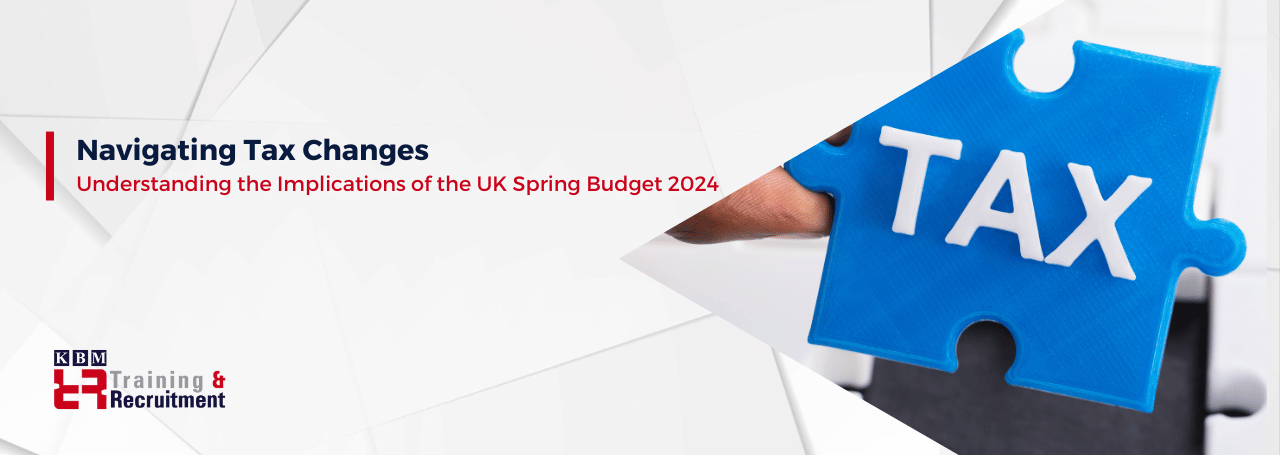The UK's Spring Budget 2024 delivered a mixed bag of tax cuts and reforms, impacting individuals, businesses, and investors. While some changes offer immediate benefits, others require careful consideration for long-term financial planning.
Let's explain the critical areas of change and their potential implications.
National Insurance Contributions (NICs): A Welcome Cut with Nuances
The most significant announcement was the reduction in NICs. Employees will see a 2% reduction in their primary rate, from 10% to 8%. As the government highlighted, this translates to a potential saving of over £900 for the average employee on a £35,400 salary.
The self-employed benefit from a more substantial reduction, with the primary rate of Class 4 NICs dropping from 9% to 6%, combined with the previously announced abolition of Class 2 contributions. However, it's important to remember that these changes only apply to earnings below a certain threshold. High earners may see little savings on their total tax bill.
Personal Tax: Balancing Allowances and Limits
The Spring Budget saw adjustments to various personal tax aspects. Here's a breakdown:
- Dividend Allowance: The tax-free allowance for dividend income has been halved to £500. This primarily affects individuals with significant investments in dividend-paying stocks.
- Pension Tax Limits: The government introduced changes to pension tax limits. While aiming to ensure the long-term sustainability of the pension system, it's crucial to assess how these adjustments will impact your retirement savings strategy. Consulting a financial adviser can be beneficial here.
Property Taxes: Potential Boost for the Housing Market
The Spring Budget aimed to stimulate the housing market, particularly for first-time buyers, through revisions to property taxes:
- Stamp Duty Thresholds: Increased thresholds for stamp duty, the tax paid on property purchases, is expected to make homeownership more affordable, potentially leading to increased property values over time.
- Investor Considerations: Property investors should be aware of changes that may affect their returns. The abolition of multiple dwellings relief for stamp duty and the removal of the special tax treatment of furnished holiday lettings could alter investment strategies. Carefully analyse the impact on your existing and future property investments.
VAT and Other Duties: A Pause and a Look Ahead
- VAT Registration Threshold: The VAT registration threshold, the point at which businesses must register for VAT, remains frozen until March 2026. This provides continued relief for small businesses by delaying the need for VAT compliance.
- Cryptoasset Reporting: The government has launched a consultation on the UK's approach to cryptoasset reporting. This reflects a focus on adapting tax regulations to new financial trends. Businesses involved with cryptoassets should stay updated on potential changes impacting their operations.
Taking Action in the New Tax Landscape
The Spring Budget's tax changes necessitate proactive steps:
Individuals
- Analyse how the reduction of NICs and changes to allowances and limits will affect your tax bill. Tools offered by HMRC (Her Majesty's Revenue and Customs) can help with this: https://www.gov.uk/personal-tax-account.
- Consider consulting a financial adviser for personalised planning, mainly regarding pensions and investments. They can guide you on maximising tax benefits and optimising your financial strategy under the new regulations.
Businesses
- Understand the implications of the frozen VAT threshold and potential crypto asset regulations. Explore growth opportunities in the new environment and seek professional advice from accountants or tax experts if needed.
Staying Informed
The government may release further guidance on implementing these changes. Stay informed by monitoring official resources like the GOV—UK website. Reputable financial institutions and accounting firms can also provide valuable insights.
Conclusion
The Spring Budget 2024 reshapes the UK tax system. Delving deeper into the details and potential implications will assist you in making informed financial decisions and navigating the new landscape effectively. Remember, seeking professional guidance can ensure you optimise your individual or business strategy in this evolving tax environment.






















